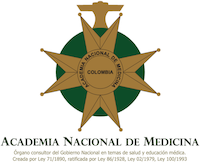Physician Perceptions of the Ethical Considerations of Receiving Benefits from the Pharmaceutical Industry
Palabras clave:
Ethics, Doctor Office Visits, Conflict of Interest, Pharmaceutical Industry, Pharmacoepidemiology, ColombiaResumen
Abstract
Objective: To learn physicians’ perspectives regarding the ethical considerations of receiving benefits from the pharmaceutical industry through its sales representatives.
Methods: Observational study, using phone interviews with general physicians and specialists in Colombia, conducted between June 1 and July 15, 2014. The variables considered were age, sex, specialty, time as a practicing professional, place of work, level of care, city, and ethical perceptions of visits by representatives of the pharmaceutical industry and perceptions of gifts, restaurant invitations, conferences, trips, and money offered by the representatives. A multivariate analysis was performed.
Results: A total of 172 physicians were interviewed; of these. 68.0% were male with a mean age 41±5.3 years, and they received a mean of 2.7 visits per week. A total of 90.1% of interviewees considered it ethical to receive desktop items, 91.3% to receive medical samples, 87.2% to receive invitations to conferences, 60.5% to accept money for research projects, and 55.8% to receive money to hold conferences. A total of 69.2% of the physicians believed that there tends to be a conflict of interest in the medical-pharmaceutical relationship, with statistically significant differences in physicians who work in public vs. private institutions (85.5% vs. 50.0%; p=0.002) and in general physicians vs. specialists (79.2% vs. 62.0%; p=0.04).
Discussion: The relationship between the pharmaceutical industry and physicians is composed of everyday interactions that can vary. The offer of different types of benefits is identified as a source of potential conflicts of interest that may lead to ethical dilemmas in the practice of medicine.
Referencias bibliográficas
Garcés Redondo G, Colán Colán C, Sánchez Oropesa A, Gómez Suanes G, Canchig Pilicita F, López de Castro F. Opinión sobre la Visita Médica de los Médicos de Atención Primaria de Toledo. Rev Clin Med Fam. 2010; 3:5-9.
Søndergaard J, Vach K, Kragstrup J, Andersen M. Impact of pharmaceutical representative visits on GPs' drug preferences. Fam Pract. 2009; 26:204-9. doi: 10.1093/fampra/cmp010.
Cardarelli R, Licciardone JC, Taylor LG. A cross-sectional evidence-based review of pharmaceutical promotional marketing brochures and their underlying studies: is what they tell us important and true? BMC Fam Pract. 2006; 7:13.
Blumenthal D. Doctors and drug companies. N Engl J Med. 2004;351:1885-90.
Wazana A. Physicians and the pharmaceutical industry: is a gift ever just a gift? JAMA. 2000; 283:373-80.
Coyle SL; Ethics and Human Rights Committee, American College of Physicians-American Society of Internal Medicine. Physician-industry relations. Part 1: individual physicians. Ann Intern Med. 2002; 136:396-402.
Asociación Médica Mundial. Declaración de la AMM sobre conflictos de intereses. Nueva Delhi. 2009: 1-6. (Fecha de consulta: Mayo 7 del 2015). Disponible en: http://www.scp.com.co/simposio/descargas/AMM.pdf
Salas SP, Osorio F M, Vial C P, Rehbein V AM, Salas A C, Beca I JP. [Conflicts of interest in clinical practice. Ethical analysis of some relationships with the pharmaceutical industry]. Rev Med Chil. 2006;134:1576-82.
Grup d'Ética. Societat Catalana de Medicina Familiar y Comunitaria. La ética en la relación con la industria farmacéutica. Encuesta de opinión a médicos de familia en Cataluña. Aten Primaria. 2004; 34:6-12.
Galán Herrera, M.T. Delgado Marroquín, R. Altisent Trota. Análisis de la relación entre el médico de atención primaria y la industria farmacéutica. Aten Primaria. 2004; 34(5):231-247.
Castreana L, Mejía R, Aznar M. Actitud de los médicos frente a las prácticas de promoción de la industria farmacéutica. Medicina (B Aires). 2005; 65:247-51.
Muijrers PE, Grol RP, Sijbrandij J, Janknegt R, Knottnerus JA. Differences in prescribing between GPs: impact of the cooperation with pharmacists and impact of visits from pharmaceutical industry representatives. Fam Pract. 2005; 22:624-30.
Schramm J, Andersen M, Vach K, Kragstrup J, Kampmann JP, Søndergaard J. Promotional methods used by representatives of drug companies: a prospective survey in general practice. Scand J Prim Health Care. 2007; 25:93-7.
Fischer MA, Keough ME, Baril JL, Saccoccio L, Mazor KM, Ladd E, et al. Prescribers and pharmaceutical representatives: why are we still meeting? J Gen Intern Med. 2009; 24:795-801. doi: 10.1007/s11606-009-0989-6.
De Ferrari A, Gentille C, Davalos L, Huayanay L, Malaga G. Attitudes and relationship between physicians and the pharmaceutical industry in a public general hospital in Lima, Peru. PLoS One. 2014; 9(6):e100114. doi: 10.1371/journal.pone.0100114.
Korenstein D, Keyhani S, Ross JS. Physician attitudes toward industry: a view across the specialties. Arch Surg. 2010; 145:570-7. doi: 10.1001/archsurg.2010.75.
Birkhahn RH, Blomkalns AL, Klausner HA, Nowak RM, Raja AS, Summers RL, et al. Academic emergency medicine faculty and industry relationships. Acad Emerg Med. 2008; 15:819-24.
World Medical Association. WMA Statement concernig the relationship between physicians and comercial enterprises. Nueva Delhi. 2009. 1-4. (Fecha de consulta: Mayo 7 del 2015). Disponible en: http://advamed.org/res.download/78
Moskop JC, Iserson KV, Aswegan AL, Larkin GL, Schears RM. Gifts to physicians from industry: the debate evolves. Ann Emerg Med. 2012; 59:89-97. doi: 10.1016/j.annemergmed.2011.08.001.
Asociación Médica Mundial. Declaración de Lisboa de la AMM sobre los derechos del paciente. Santiago de Chile. 2005. 1-4.
Schetky DH. Conflicts of interest between physicians and the pharmaceutical industry and special interest groups. Child Adolesc Psychiatr Clin N Am. 2008; 17(1):113-25.
American Medical Association. Code of medical ethics. Opinion 8.061-Gifts to Physicians from Industry. (Fecha de consulta: Mayo 7 del 2015). Disponible en: http://www.ama-assn.org/ama/pub/physician-resources/medical-ethics/code-medical-ethics/opinion8061.page
Cómo citar
Descargas
Publicado
Número
Sección
Licencia
Copyright
ANM de Colombia
Los autores deben declarar revisión, validación y aprobación para publicación del manuscrito, además de la cesión de los derechos patrimoniales de publicación, mediante un documento que debe ser enviado antes de la aparición del escrito. Puede solicitar el formato a través del correo revistamedicina@anmdecolombia.org.co o descargarlo directamente Documento Garantías y cesión de derechos.docx
Copyright
ANM de Colombia
Authors must state that they reviewed, validated and approved the manuscript's publication. Moreover, they must sign a model release that should be sent.



